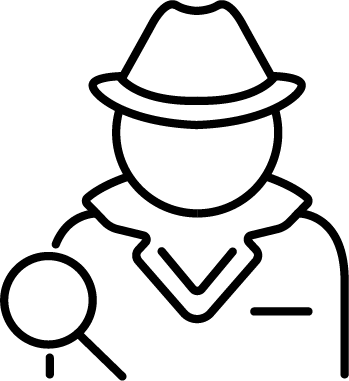What is evolution?
The process though which organisms have changed and adapted from the past to the present.
What is a gene?
The basic unit of heredity in living things. Genes consist of segments of DNA that make up code to produce various substances. Genes are passed from parents to offspring which result in various traits in the offspring.
What is an allele?
One of two (or more) forms of a gene that are located on the same location on a chromosome.
What is a chromatid?
The two strands of DNA that divide during mitosis.
What is a chromosome?
The carrier of genetic information in the form of genes. A structure of nucleic acid and protein found in the nucleus of most cells.
What is a dominant allele?
The allele that expresses the phenotype of a trait even in the presence of a recessive allele.
What is a recessive allele?
The allele that does not express the phenotype of a trait unless two recessive alleles are present.
What is a genotype?
The genetic makeup of an organism.
What is a phenotype?
The outward appearance of a trait.
What is the Law of Independent Assortment?
A law that states different alleles and genes are independently inherited during meiosis.
What is Crossing Over?
The exchange of genes between a pair of homologous chromosomes.
What is the Hardy-Weinberg Law?
The law that states that the genetic frequencies of various traits in a population remain constant over the long term from generation to generation.
What is an adaptation?
A change or process that enables an organism to become better suited to the environment.
What is selection pressure?
External factors that affect organisms’ ability to survive in their environment.
What is divergent evolution?
The process in which groups from the same species evolve different traits.
What is convergent evolution?
When groups of organisms develop similar traits independently from each other.
What is Complete Dominance?
A monohybrid cross studies how a single trait, like flower color or plant height, is inherited. The key idea here is complete dominance. This means one version of a gene (the dominant allele, often a capital letter like "P") completely hides the effect of the other version (the recessive allele, a lowercase letter like "p").
Imagine crossing a plant with pure purple flowers (PP) and one with pure white flowers (pp). All the first generation offspring (F1) will be "Pp" and look purple, because "P" is dominant.
When you cross two of these "Pp" hybrid plants, the second generation (F2) results are predictable. For every four offspring, three will show the dominant trait (purple) and only one will show the hidden recessive trait (white). This gives a 3:1 ratio!
What is Incomplete Dominance?
An incomplete dominance monohybrid cross also tracks a single trait, but unlike complete dominance, neither allele is strong enough to hide the other one completely. Instead of one color winning out, the traits blend together!
The best example is the snapdragon flower. If you cross a red flower (RR) with a white flower (WW), the resulting offspring (F1) will all have a new, intermediate color: pink (RW).
When you cross two pink plants (RW x RW), the results are different from the 3:1 ratio you saw before. The F2 generation will show three phenotypes: red, pink, and white flowers in a 1:2:1 ratio. This blending proves that the dominance was "incomplete," since the pink trait is a mix of the two parents.
What is Codominance?
Codominance occurs when two different alleles for a trait are both fully expressed at the same time, without blending. Think of it like a partnership where both traits get to be visible!
A perfect example is a special type of cattle called a roan. If you cross a pure red cow (RR) with a pure white cow (WW), the calf (F1 generation) won't be pink (that's blending/incomplete dominance). Instead, the roan calf (RW) will have a coat with an even mix of both red hairs and white hairs. You can see both colors clearly!
When you cross two roan animals (RW x RW), the offspring follow the same 1:2:1 ratio for genotypes and phenotypes: 1 Red (RR), 2 Roan (RW), and 1 White (WW).
 Evolution is one of the foundations on which the life sciences were built. How are new species created? Why do organisms change? What does it mean to adapt? These and many other important life questions are addressed and answered by studying the processes of evolution. Your challenge is to examine these processes and answer the main questions involving living things.
Evolution is one of the foundations on which the life sciences were built. How are new species created? Why do organisms change? What does it mean to adapt? These and many other important life questions are addressed and answered by studying the processes of evolution. Your challenge is to examine these processes and answer the main questions involving living things.

